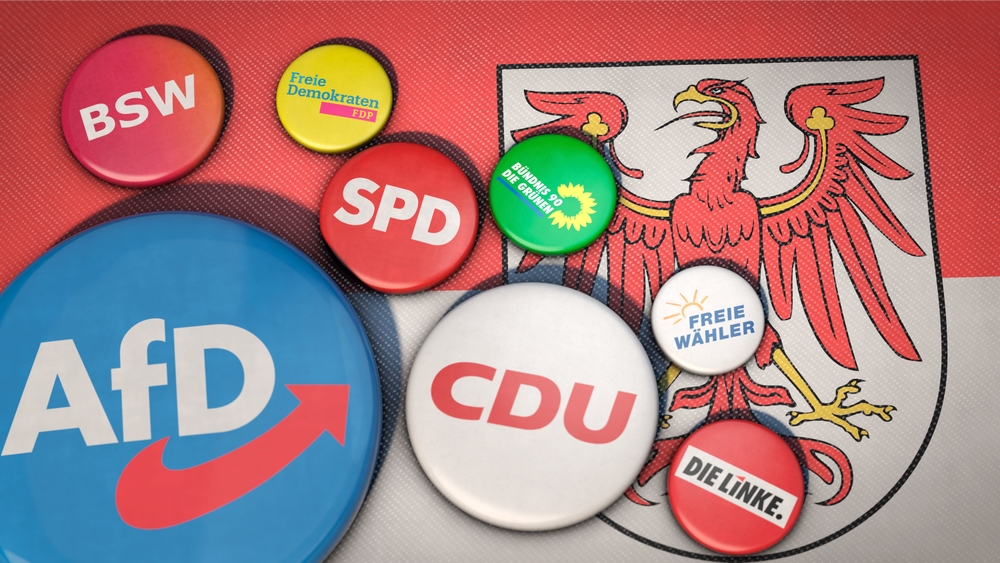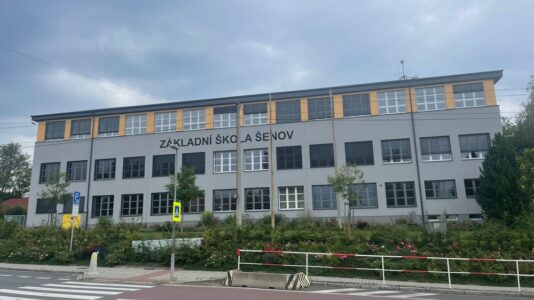Despite the Alternative for Germany’s (AfD) stellar results in state elections in the east, it is struggling to form an alliance with other parties. However, the so-called “firewall” against the AfD is not so sturdy, and the party may be able to get what it wants through cooperation.
There are already some Christian Democrat CDU politicians calling for the CDU to at least enter talks with the AfD. In addition, the left-wing BSW has already signaled it is willing to “cooperate” with the AfD, as both parties have substantial overlap when it comes to immigration restrictions, opposition to the planned phasing out of combustion engines, and opposition to the ongoing Ukraine-Russian war, among other topics.
CDU state parliament member Martina Schweinsburg said the Thuringian CDU should not only enter into exploratory talks with the Left Party, but also with the AfD.
“Over 30 percent of Thuringians voted for the AfD. And it is a sign of respect for the voters to talk to those who voted for them,” said the president of the Thuringian District Council. Schweinsburg had already refused to rule out talks with the AfD and the Left Party in the past.
“This Pippi Longstocking policy of saying that ”the AfD is a bad child, you mustn’t play with it’ has failed,” said the 65-year-old. However, she noted that she did not expect these talks to result in an alliance with either the Left or the AfD.
While it is unlikely that the CDU will join an alliance with the AfD, both parties could potentially cooperate on certain votes. In fact, the BSW has already signaled it is willing to work with the AfD.
As MDR notes, Wagenknecht ruled out cooperation with Björn Höcke in Thuringia, but indicated, “that the BSW could agree to individual AfD motions in the state parliament if there is a common basis for cooperation.”
In fact, the key policy of the BSW is arguably peace with Russia and that is turning into a key demand for any alliance.
In terms of foreign policy, both the AfD and the BSW want “a departure from Western integration,” said Thomas Jäger, a professor of international politics and foreign policy at the University of Cologne, according to MDR.
“Only the AfD can meet these requirements,” said Jäger. “And the (BSW) can’t simply withdraw them without losing face.”
Migration
When it comes to migration, the AfD, BSW, and even the CDU are not far apart, even if the CDU has a history of promoting mass immigration and wants to ramp up illegal immigration.
“The AfD formulates things more drastically, more nationalistically and more consistently,” said Jäger.
Nevertheless, all three parties can find some common ground on the issue.
Energy
When it comes to energy policy, the AfD and BSW have much overlap, and both parties are demanding a return of cheap Russian natural gas. In fact, with the German economy in free fall, and companies like VW planning to close factories, a resumption of Russian gas and oil would help bring down inflation, keep German businesses in Germany, and jumpstart the economy.
At the same time, CDU politicians are undoubtedly worried about being forced into an alliance with the left-wing BSW, along with other parties rejected by east German voters, such as the SPD and the Greens. The BSW shares the AfD’s stance on the conflict in Ukraine, and the CDU has spent its entire time in office lambasting Scholz and his coalition partners. It makes it all very hard for the CDU to partake in business-as-usual politics and simply join forces with these parties.
The AfD would have far fewer taboos about joining forces with the BSW, and in fact, many of the party’s voters would cheer such a move. The BSW voters, meanwhile, may be split on this.
Perhaps most importantly, the CDU and to some degree the BSW, are eyeing national elections next year. While they may find common ground with the AfD at the local level, neither party wants to jeopardize their chances at federal elections with an outright alliance with the party. As a result, cooperation on specific votes is perhaps the most the AfD can expect at the present time.






